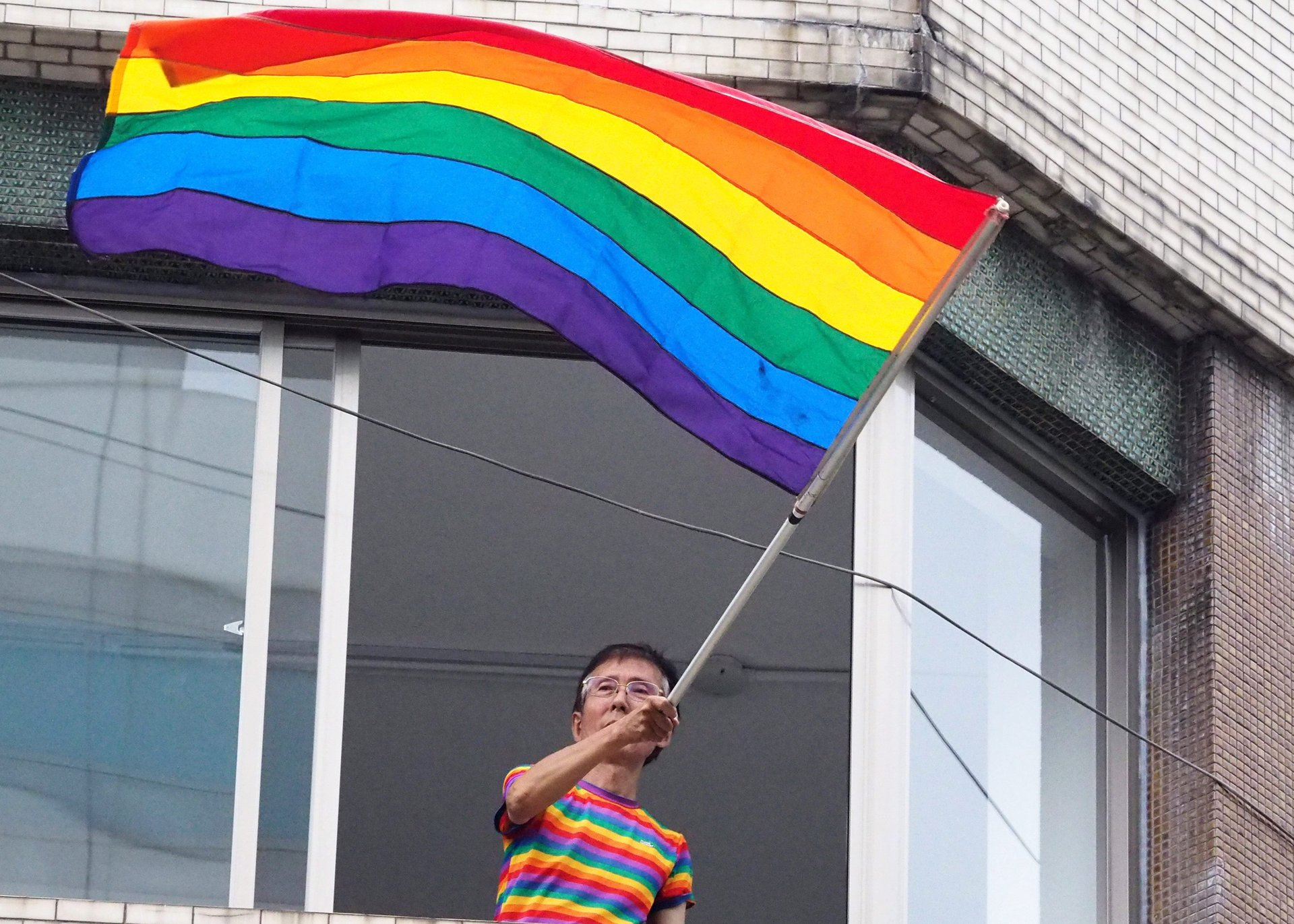After fighting for 30 years, Taiwan’s gay rights crusader senses victory for marriage equality
Taipei, Taiwan


Taipei, Taiwan
In 1986, in the twilight of Taiwan’s four decades of martial law known as the White Terror, 28-year-old Chi Chia-wei did what for many was unthinkable: he came out publicly as gay. He spent 162 days in prison, released only after a lenient and ashamed judge pardoned him, with tears in his eyes.
During the 30-plus years since Chi challenged Taiwan’s then-authoritarian government, he has been a constant force pushing for societal—and legal—acceptance of his LGBTQ comrades. Now Taiwan’s constitutional court is preparing to review a lawsuit filed by Chi nearly two years ago, setting the stage for what could be a tipping point in the the push for marriage equality here.
Chi said he learned the court would review his case earlier this month when a journalist contacted him with the news.
“The court doesn’t want me to appear,” the energetic Chi, 59, said with a smile. “Once I show up, they’re in for a real headache.”
This is not the first time Taiwan’s courts have had to deal with Chi’s persistence. 16 years ago it ruled against Chi, who sought a constitutional review of Taiwan’s marriage laws so that he could marry his partner. The couple have been together since 1988. In 2015, Taiwan’s Supreme Court ruled against Chi once more.
This time around he is confident of victory, not in small part to the fact that the Taipei City government is also requesting a constitutional interpretation of Taiwan’s marriage laws, which he said was the impetus for the court taking up the case.
On December 26, Taipei’s Bureau of Civil Affairs began issuing non-legally binding same-sex partnership certificates, which resemble ID cards. These cards permit couples to sign medical consent forms for each other or apply for family leave. As of the end of November 272 couples had registered under the scheme.
“Look, Taiwan is a democracy, it has rule of law,” he said. “We’re on the same path as the US, France, and the UK.”
The hearing for Chi’s newest case will be held on March 24. Supporters and opponents of marriage equality will be allowed to make their case to the Council of Grand Justices, as the court is officially known. Additional oral arguments may take place afterward, if the court sees fit, after which it will have a month to reach a decision.
Before same-sex marriages can be legally recognized, a decision by the court’s 15 justices in favor of the constitutionality of same-sex unions would need to be followed by new laws passed by Taiwan’s legislature, the Legislative Yuan. Chi said that if the court rules in favor of marriage equality, new laws would be a foregone conclusion.
“The Legislative Yuan can’t negate the court’s ruling,” he said. “They’d only be able to delay legislation.”
Concurrent to the judicial review, proposed same-sex marriage legislation is currently working its way through the Legislative Yuan.
Unlike previous hearings of Chi’s cases, the court has decided this time to make the same-sex marriage debate a very public event by broadcasting court proceedings live online.
Participants in the hearing who oppose marriage equality in Taiwan, a movement that has been spearheaded by a small group of highly organized conservative churches, are likely to be out in full force. Taiwanese same-sex marriage opponents have recently acquired new allies in their fight: the right-wing American group MassResistance.
But Taiwan’s LGBTQ community is more organized—and more mainstream—than ever before.
Last October Chi was honored with the Pioneer Award at the first annual Queermosa Awards. “Chi is a pioneer in Taiwan’s gay rights movement,” said Jay Lin, the founder of the awards who is himself a vocal advocate for LGBTQ rights in Taiwan. “To this day, you can see him at rallies and parades waving his large rainbow flag—his presence alone inspires the new generation.”
Legal same-sex marriage in Taiwan is not a matter of if, but when, Chi said. Once it happens, however, he said he will still have plenty to fight for. He worries that same-sex marriage legislation, should it arrive, might not cover the rights of same-sex couples to raise or adopt children.
“I never tire,” Chi said. “Every morning when I wake up, it’s like my first day of doing this 30 years ago.”